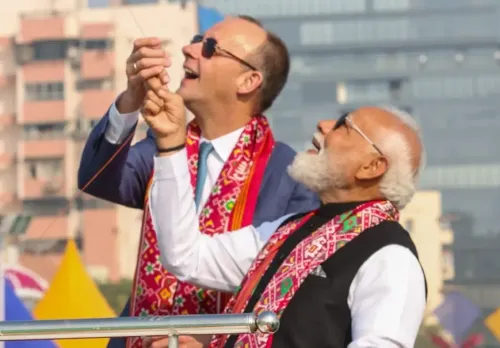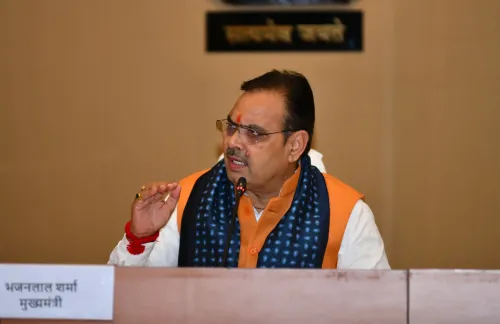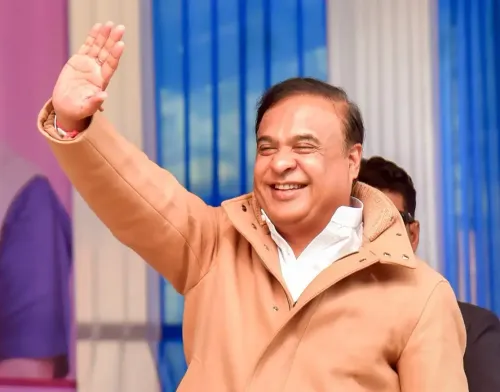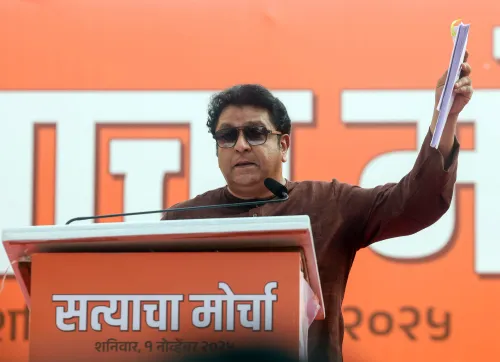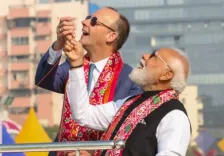How Will PM Modi’s Fiery Directive Impact Terrorism Response?
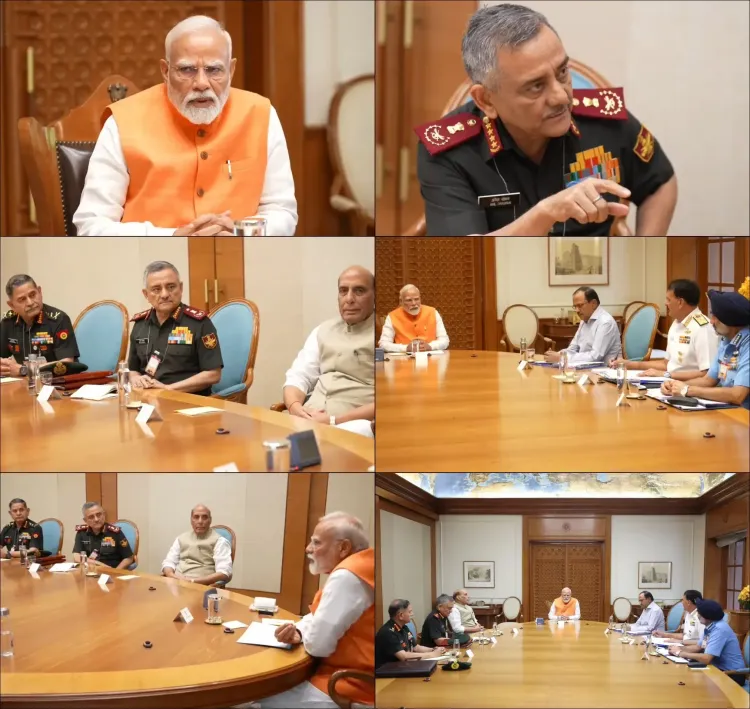
Synopsis
Key Takeaways
- PM Modi emphasizes strong action against terrorism.
- Indian armed forces granted operational freedom.
- Heightened military readiness across borders.
- Immediate review of intelligence and military options.
- Significant national security measures in response to attacks.
New Delhi, April 29 (NationPress) In an urgent emergency meeting, Prime Minister Narendra Modi emphasized that India will deliver a devastating blow to terrorism. While addressing the senior security officials, PM Modi expressed unwavering confidence in the professional abilities of the Indian Armed Forces and granted them complete operational freedom to determine the “methods, targets, and timing” of their response to the Pakistan-based terror threat.
“India is set to strike a decisive blow against terrorism,” government sources quoted the Prime Minister, hinting at a significant retaliation ahead.
This assertive statement followed the Pahalgam massacre, where 26 innocent lives were taken, predominantly tourists, leaving the nation on high alert for the forthcoming response. This indicates that India is preparing to unleash a formidable and uncompromising strike against terrorists and their supporters, potentially altering the dynamics of conflict.
The high-priority meeting, which included Defence Minister Rajnath Singh, National Security Advisor Ajit Doval, and the Chiefs of the Army, Navy, and Air Force, was characterized by sources as “extraordinary in urgency and nature”. The gathering occurred shortly after the brutal Pahalgam attack, sending a clear signal of imminent action.
The agenda was straightforward: a thorough examination of actionable intelligence and an in-depth exploration of military and strategic options aimed at dismantling terror networks across the border. With Lashkar-e-Taiba and other Pakistan-based terror organizations under scrutiny, sources indicated that the meeting outlined a robust strategy to penalize the culprits and their supporters.
In response to the terror attack, India has heightened its military readiness, especially along the Line of Control and international borders. Surveillance drones, satellite imagery, and electronic monitoring have been actively observing terrorist launch sites across PoK.
In the wake of the Pahalgam attack, the Centre has implemented strong measures, including the suspension of the Indus Waters Treaty and the expulsion of Pakistani nationals with short-term visas. PM Modi had previously pledged to pursue every terrorist and their supporters “to the ends of the earth.”
Tuesday’s meeting is perceived as the initial step in realizing that pledge, as India braces for a powerful response.
While official details remain confidential, the atmosphere in Delhi is palpably tense and resolute. As the focus sharpens on the individuals responsible for the Pahalgam tragedy, India stands poised for the storm that is about to erupt. The nation is preparing for action, and it may be nearer than anyone anticipates.


